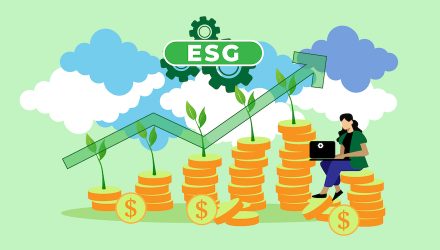Spinnaker Trust is a bank trust company located in Portland, Maine. At Spinnaker, we manage approximately $2 billion on behalf of our clients. Our equity-related investment strategies recently made a bold pivot toward ESG (Environmental, Social & Governance) and sustainable investing. A year ago, we decided to move the portfolios in that direction and were able to make a bigger push in late March and April when the market afforded us the ability to do so.
We were not alone in this shift as 2019 saw a 67% year-over-year increase in ESG-related content from asset managers per Peregrine Communications. Further, Morningstar showed that 23 new ESG funds launched in the first half of this year, and U.S.-based sustainable funds saw record net inflows.
We had been early proponents of sustainable investing, introducing our Fossil-Fuel-Free strategy in 2013. Based upon a great deal of client input over the last several years and our own firm values, we decided to adopt a more comprehensive mandate by introducing a full ESG framework to our investment research and decision-making process. We believe that considering ESG factors allows us to better account for the non-financial risks that our companies may face.
ESG investing is at a critical juncture and is poised for mass adoption over the next decade as Millennials age and institutions feel increasing pressure to be seen as part of the solution. Never before has there been such a focus on workers’ rights, safe working environments, and a diverse and representative work force (the Social part of ESG). Governance has always been a point of consideration by institutional investors, though there are new points of emphasis such as board diversity and multi-class shareholder structures. Recent drought conditions and the resulting wildfires across the globe remind us that Environmental considerations (the E in ESG) have never been more directly felt and important.
In our ETF strategies, we use ETFs with a relatively high tracking error to the S&P 500 that hold companies with the highest ESG scores in their respective sectors as our “core.” In our stock-picking strategies, we are using that ESG research as a meaningful part of our stock selection framework and are pleased to convey that our cumulative portfolio scores sit in the highest 30% of the investment universe. Further, we no longer have direct exposure to traditional energy companies.
For those unfamiliar with or skeptical about ESG investing, we believe that equity portfolios with ESG as their core offer better long-term returns as their quality characteristics are generally better. Quality means that investment return metrics like return on equity and return on invested capital are higher and balance sheets are less risky. Further, a management team that has adopted an ESG mindset is generally thinking more about the long-term and potential “tail” events. It should be noted that our core ESG holding within U.S. equities has outperformed the S&P 500 on a net basis by 5% so far in 2020, 6% over the last 12 months, 5% over the last three years, and 12% over the last five years.

